Stormont crisis: Brokenshire says election 'highly likely'
- Published
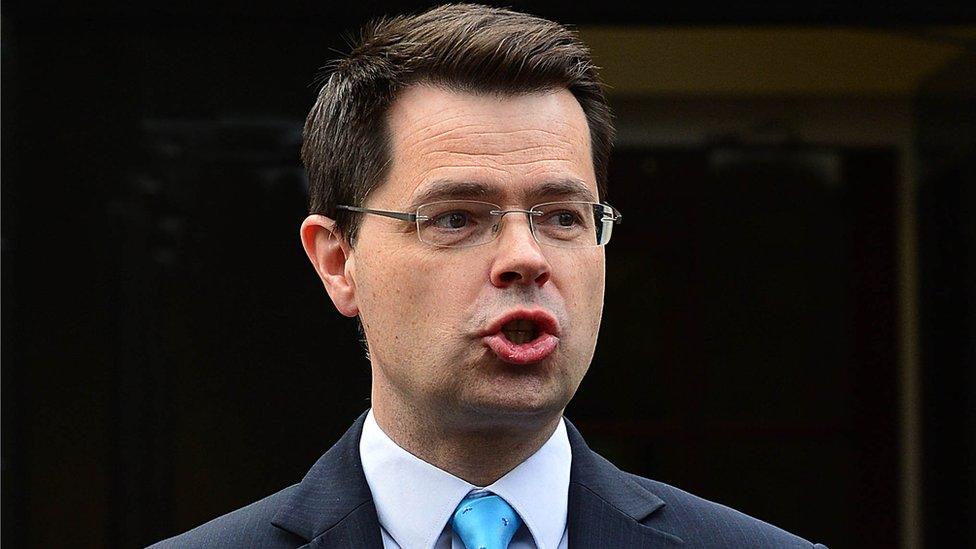
James Brokenshire said the position that faces the parties remains "serious and stark"
Northern Ireland's secretary of state has said that an election is now "highly probable" as talks so far have failed to break the political deadlock.
James Brokenshire made the comments after meeting Irish Foreign Minister Charlie Flanagan.
Martin McGuinness resigned on Monday in protest against the handling of the Renewable Heat Incentive (RHI) scheme.
The Sinn Féin MLA said he was willing to meet the DUP about the crisis that looks set to spark a snap election.
'Serious and stark'
After meeting Mr Flanagan on Thursday, Mr Brokenshire said they discussed "a way forward" to "support the parties to avoid an election".
The secretary of state added that "the clock is ticking down towards the start of next week" when an election would be inevitable.
"It's important for the parties to talk together and anything that indicates a move to encourage that type of discussion I take as helpful, albeit that position does remain serious and stark," he said.
"We are still looking at an election, but we are doing everything we can, as the two governments, to work with the political parties to see if there is a way forward that can be found," he added.
Mr Brokenshire and Mr Flanagan also held separate meetings with the political parties on Thursday.
The Sinn Féin delegation was led by Mr McGuinness and included Michelle O'Neill and Conor Murphy.
Mr Flanagan said that an election seemed "even more likely" and that there will be "an extremely difficult challenge following the election in putting together an administration".
Taoiseach (Irish Prime Minister) Enda Kenny said any talks between parties would have the full backing of the governments in Dublin and London.
But Sinn Féin leader Gerry Adams continued to insist there is no basis for any negotiation.
The party has also confirmed it will not be replacing Mr McGuinness as deputy first minister.
Under Northern Ireland's power-sharing agreement, his departure meant DUP First Minister Arlene Foster also lost her job.
Under Stormont rules, Sinn Féin have until next Monday to nominate a new deputy first minister, or the secretary of state must call an election.
Next Monday, Stormont's finance committee is having an additional meeting to discuss the budget.
Former first minister Mrs Foster has warned that if an election goes ahead, it will be "brutal".
She set up the RHI scheme in 2012 when she was enterprise minister, in an attempt by the NI Executive to increase consumption of heat from renewable sources.
However, businesses received more in subsidies than they paid for fuel, and the scheme became heavily oversubscribed.

Analysis: Enda McClafferty, BBC News NI Political Correspondent
Not for the first time the institutions at Stormont are on the brink of collapse, as efforts continue on both sides of the border, to break the deadlock.
On Wednesday night, Martin McGuinness told Enda Kenny he was willing to meet the DUP.
But in a statement later, party president Gerry Adams said while Sinn Féin was open to talks, it could see no basis yet for credible negotiation this side of an election.
From 17:00 GMT on Monday it will be over to the secretary of state to set a date for an election.
While both parties accept an election is the likely outcome, they will continue to use what little time they have left to try to save the institutions."

Sinn Féin Finance Minister Máirtín Ó Muilleoir told BBC's Good Morning Ulster on Thursday that while talks with the DUP were the "right thing to do", he did not hold think they were likely to resolve matters.
Sinn Féin is to hold the first of a number of election selection conventions on Sunday.
An election, which is widely predicted to take place in early March, could cost the taxpayer around £5m.
What happens now the deputy first minister has resigned?
Ulster Unionist Party leader Mike Nesbitt said that direct rule from Westminster was a possibility should the two biggest parties returned in the election fail to reach agreement.
But Colum Eastwood, leader of the Social Democratic and Labour Party (SDLP), said there could be no return to direct rule.
- Published11 January 2017
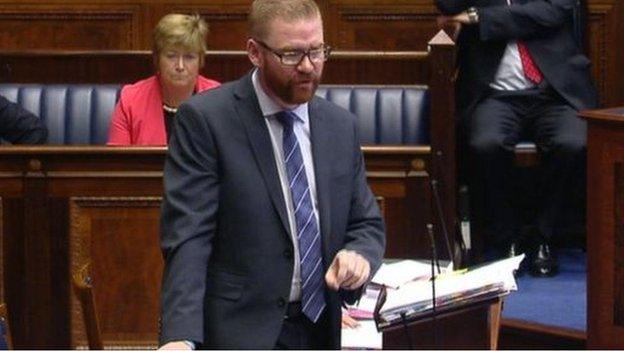
- Published10 January 2017
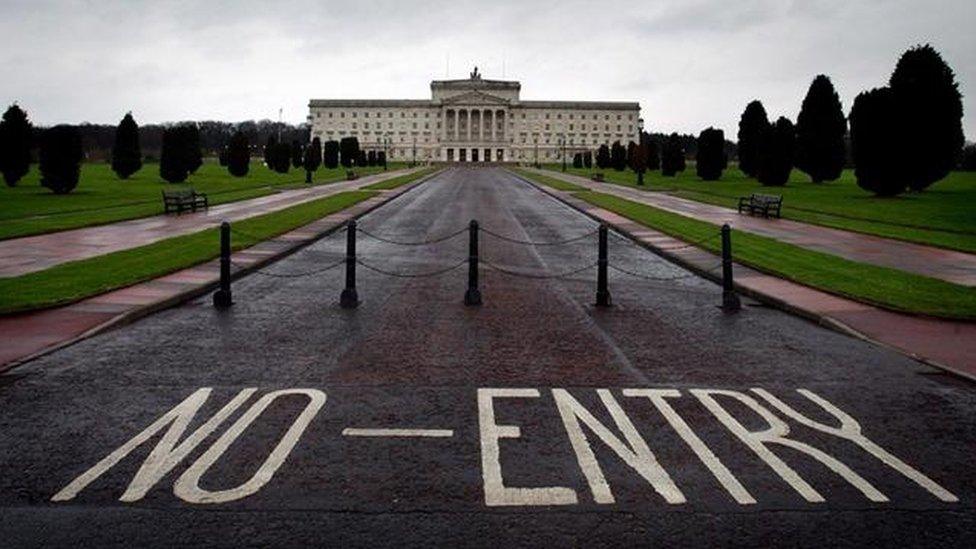
- Published7 March 2017
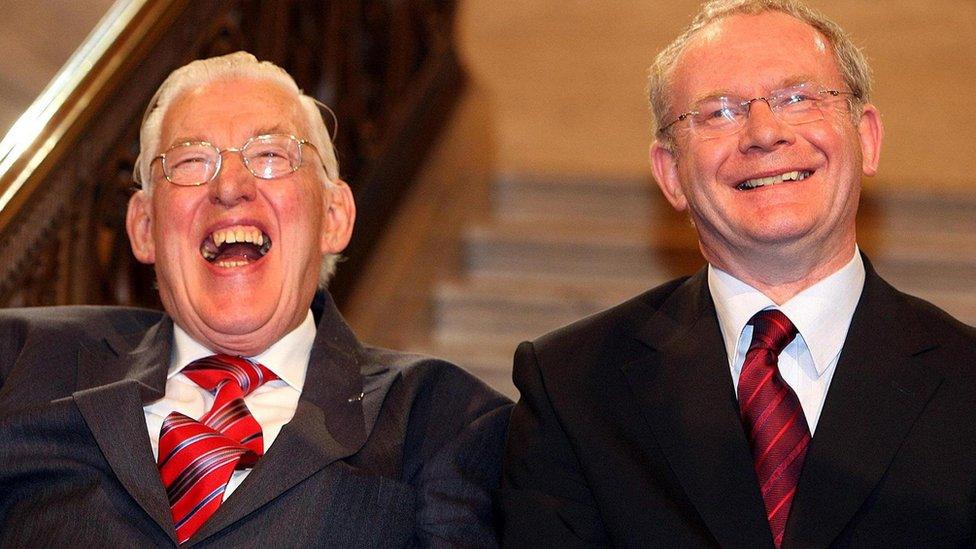
- Published10 January 2017
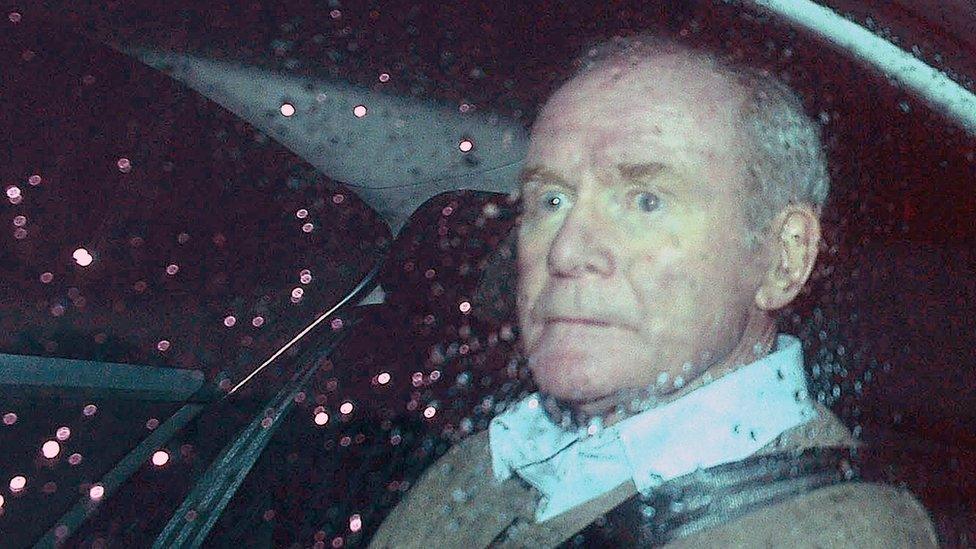
- Published9 January 2017
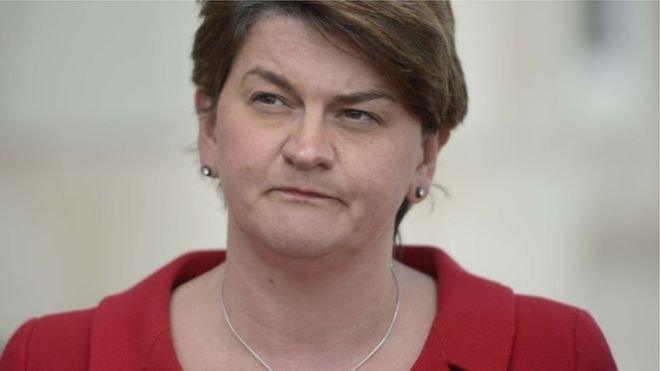
- Published10 January 2017
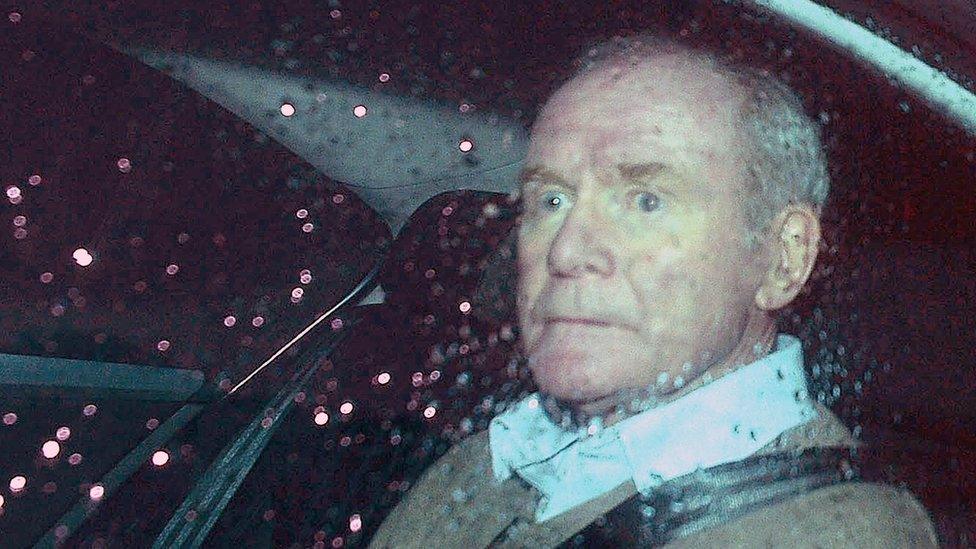
- Published23 October 2019

- Published19 December 2016
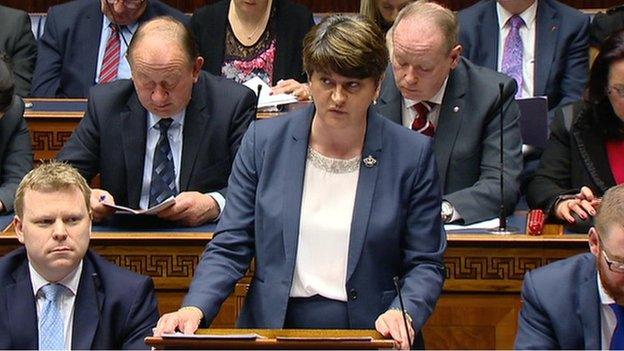
- Published7 November 2017
